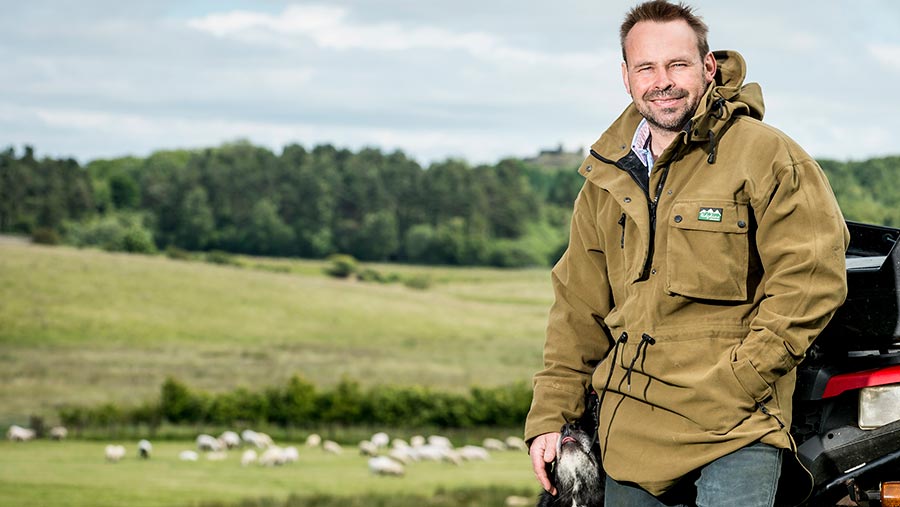Farmer Focus: Keeping close eye on egg counts in lambs
 Simon Bainbridge ©Jim Varney
Simon Bainbridge ©Jim Varney We have been using a faecal egg counting kit to test the lambs. There is still some nematodirus, but not many worms.
Having discussed the counts with my vet, we have decided to wait until weaning to worm, but we will continue to keep a close eye on egg counts.
We have used only a white wormer so far with the lambs. With a bit of luck, we will get away with that and get some lambs away soon.
The grass is growing well with the heat and rain and we should get the second cut at the beginning of August, with the whole crop later in the month.
See also: Warm weather kick-starts crop growth
The good times will soon be over for the bulls – they are due to come off the heifers after 42 days and the cows after 49 days.
We have been busy topping some of the thistles and rushes across the farm. However, I have left some extra areas as they are teeming with bees.
Our organic Higher Level Stewardship has been a real success for the wildlife on our farm, with masses of bees, curlews, lapwings, small birds, and acres of flowers – some planted by us and some flourishing under our stewardship.
See also: Government should buy British produce
As Brexit means Brexit, we must make and take the opportunity to get a food and farming policy that works for all of us.
I feel George Eustice needs to step up and start making good on his promises.
But we also need to put forward what we would like and what could work.
There’s no point in throwing the baby out with the bath water. Some of what we are doing, and have done, actually works.
It’s just making it workable for all and getting the message across to the public about what good we deliver – while also producing safe and high-welfare food for them.
I often listen to Neil Parrish, and will offer him my help in holding George Eustice’s feet to the fire.
See also: Read more from the Livestock Farmer Focus writers
Simon Bainbridge runs a 650ha organic farm in Northumberland alongside his wife, Claire, and his parents. With 150 suckler cows and 1,500 breeding ewes, healthy maternal livestock and quality feed are priorities.
